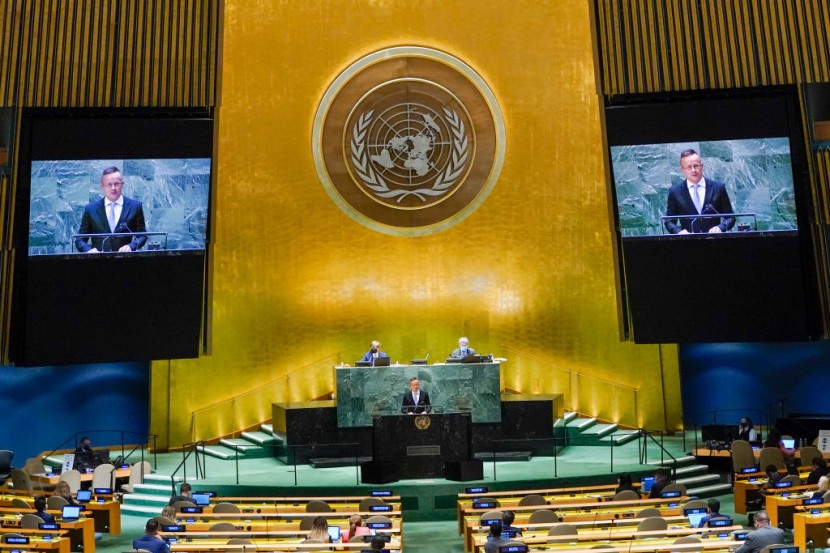
The United Nations held a meeting on race and reparations this week, but representatives from the United States, the United Kingdom, and other countries did not attend.
Representatives from the US and the UK opted to attend a summit on COVID-19 vaccine supplies convened by Joe Biden.
According to CNN, ambassadors from Africa, Asia, and South America took part in the United Nation's meeting on race titled, "Reparations, racial justice, and equality for people of African descent."
US Secretary-General Antonio Guterres opened the discussions on race and reparations by explaining to the attendees why it was even necessary to tackle such issues.
"Racism and racial discrimination still permeate institutions, social structures, and everyday life in every society. Structural racism and systematic injustice still deny people their fundamental human rights. We must reverse the consequences of generations of exclusion and discrimination -- including their obvious social and economic dimensions," he said via CNN.
US and UK representatives cite the 2001 Durban Declaration protests
Despite the meeting's importance, the countries that skipped it claimed that they decided not to attend because of its controversial origins.
After all, the meeting was held to commemorate the 20th anniversary of adopting the Durban Declaration and Programme of Action, which earned criticisms in 2001, according to a press release by the United Nations.
Back then, there were massive discussions on whether the Israel-Palestinian issues should be included in the rubric of discrimination.
The incident also resulted in the US and Israel walking out in protest after making a decision not to include racial discrimination against Palestinians.
UK and UK representatives that skipped the meeting were praised
Israel's Ambassador to the United States and the United Nations, Gilad Erdan, said the Durban Conference of 2011 failed to fight racism and encouraged hate and antisemitism.
Erdan also praised those that decided not to attend this week's meeting on race and reparations.
"This proves that there is a growing recognition of the fact that the Durban Conference was plagued with bigotry and that the Durban Declaration does nothing to promote the fight against racism... I hope this will be the last UN event commemorating that shameful conference," he said via a statement to CNN.
Linda Thomas-Greenfield, US ambassador to the UN, also issued a similar statement.
"[It] remains opposed to the anti-Israel and anti-Semitic underpinnings of the Durban process, and has longstanding freedom of expression concerns with the DDPA," she said.
However, the US and the UK both acknowledge the importance of these issues.
Racism and reparation issues should be addressed
Still, the United Nations General Assembly pledged to double their efforts to combat racism around the world.
According to South China Morning Post, South African President Cyril Ramaphosa also urged the UN to tackle reparations during one of the world's darkest times due to the COVID-19 various and senseless killings.
President Felix Tshisekedi of the Democratic Republic of Congo said that reparations should reflect racial inequality, subordination, and discrimination.
Related Article : United Nations Calls Taliban-Controlled Afghanistan To Include Woman and Minorities in the New Interim Government








